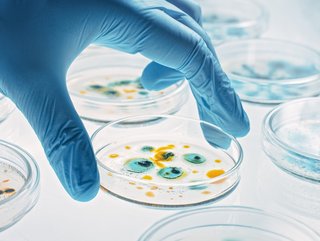Scientists use AI to discover superbug–killing antibiotic

Scientists have used artificial intelligence (AI) to discover a new antibiotic, abaucin, that has been reported to show useful activity and kill off deadly superbugs. New evidence suggests that abaucin is effective against Acinetobacter baumannii (A. baumannii), which the World Health Organisation has identified as a “critical” threat to humanity.
As reported by BBC news, the AI helped narrow down thousands of potential chemicals to just a handful that could be tested in the laboratory. The result of which proved that an experimental antibiotic could prove to be very effective, but it will need to undergo further testing before it can be used.
AI trained to analyse nearly 7000 compounds
Acinetobacter baumannii is a so-called ‘superbug’ that can cause infections in the blood, urinary tract, and lungs (pneumonia), or in wounds in other parts of the body. According to the CDC, it can also “colonise” or live in a patient without causing infections or symptoms, especially in respiratory secretions or open wounds. These types of infections typically occur in people in healthcare settings, ultimately impacting already unwell or immunocompromised patients.
Researchers used an AI algorithm to screen thousands of antibacterial molecules in the hopes of predicting new structures. As a result of the screening, researchers were able to identify a new antibacterial compound: abaucin.
This was after the AI model was used to analyse 6,680 compounds that it had not encountered before. The process took an hour and a half and the result was that 240 compounds could be tested in the laboratory, ultimately revealing nine potential antibiotics - one of which being abaucin.
“We had a whole bunch of data that was just telling us about which chemicals were able to kill a bunch of bacteria and which ones weren’t. My job was to train this model, and all that this model was going to be doing is telling us essentially if new molecules will have antibacterial properties or not,” said Gary Liu, a graduate student from MacMaster University who worked on the research, as reported by The Guardian.
Sparking the medical revolution?
Laboratory experiments involved testing abaucin on mice with open wounds, which confirmed that it was not only able to suppress the infection, but kill A. baumannii samples in patients completely. Researchers believe that the precision of abaucin will ultimately work to combat drug resistance.
The researchers in Canada and the US have said that AI has the power to massively accelerate the discovery of new drugs. Professor James Collins, from the Massachusetts Institute of Technology (MIT), said to the BBC: "This finding further supports the premise that AI can significantly accelerate and expand our search for novel antibiotics.”
Also working in the laboratory is Dr Jonathan Stokes, from McMaster University, who expects that the first AI antibiotics could take until 2030 until they are available to be prescribed. He added: "AI enhances the rate, and in a perfect world decreases the cost, with which we can discover these new classes of antibiotic that we desperately need."
This discovery comes in the wake of AI being used more extensively within the healthcare industry. As reported in April 2023, Google DeepMind in particular has achieved many scientific breakthroughs with its AI, AlphaFold, being able to predict protein structures






